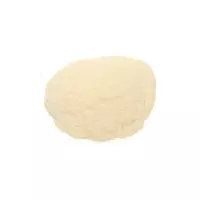Pectin

Pectin is a plant-based substance that has gluing properties. The scientific language is a purified polysaccharide, which is obtained by extracting apple or citrus pulp. Being a gelling agent, thickener, stabilizer and clarifier, it is registered as a food additive E440. In nature, this substance is found in vegetables, fruits and various root crops.
In the food industry, the beneficial properties of pectin are used in the manufacture of sweets, desserts, fruit fillings, pastry pastilles and jelly products, dairy products, mayonnaise, ketchup. All over the world, apple pectins are highly valued among confectionery producers. In the production of canned food and dairy food, citrus pectin is mainly used.
There are 2 types of pectin (powder and liquid extract) that have found wide use in industrial conditions, and are also used by modern housewives. In recipes, the two forms are not interchangeable, since the types of pectin used depend on the mixing condition of the products. Powdered pectin is mixed with juice and cold fruit in fresh form, while liquid is added to hot product. It can most often be found in packaged powder form. The calorie content of pectin is 52 kcal per 100 grams of substance.
Benefits of pectin
The benefits of pectin are manifested when it is used in food to stabilize metabolism. It is able to reduce cholesterol in the body, improve intestinal peristalsis and peripheral circulation. But its most valuable property can be safely called the ability to purify living organisms from harmful substances (radioactive elements, pesticides and toxic metal ions). Therefore, many experts call this substance the body's orderly.
Due to its positive properties, pectin is widely used in the pharmaceutical industry. The health benefits of pectin are quite obvious, since its enveloping and astringent properties have a beneficial effect on the state of the mucous membrane of the gastrointestinal tract. For peptic ulcers, it acts as a mild anti-inflammatory and analgesic natural remedy.
Pectin harms
Pectin can be harmful if it is consumed excessively. This affects the decrease in the absorption of valuable minerals (iron, calcium, magnesium and zinc), fermentation in the colon may begin, as a result of which flatulence appears and the digestibility of proteins and fats decreases.
It should be noted that pectins come from natural sources in small quantities and are extremely beneficial. After all, no one eats berries and fruits in kilograms, so the adverse consequences appear only from such volumes that are difficult to get from food. Only with excessive fascination with biologically active additives, which are saturated with various useful substances, can an overdose of pectin occur.
pectin 52 kCal
Energy value of pectin (Ratio of proteins, fats, carbohydrates - ju):
Proteins: 3.5 g (~ 14 kCal)
Fats: 0 g (~ 0 kCal)
Carbohydrates: 9.3g (~ 37kCal)
Energy ratio (bj | y): 27% | 0% | 72%
 Español
Español Français
Français Português
Português Русский
Русский 简体中文
简体中文 繁體中文
繁體中文 日本語
日本語 한국어
한국어 العربية
العربية Türkçe
Türkçe Қазақ
Қазақ Deutsch
Deutsch Italiano
Italiano Українська
Українська
